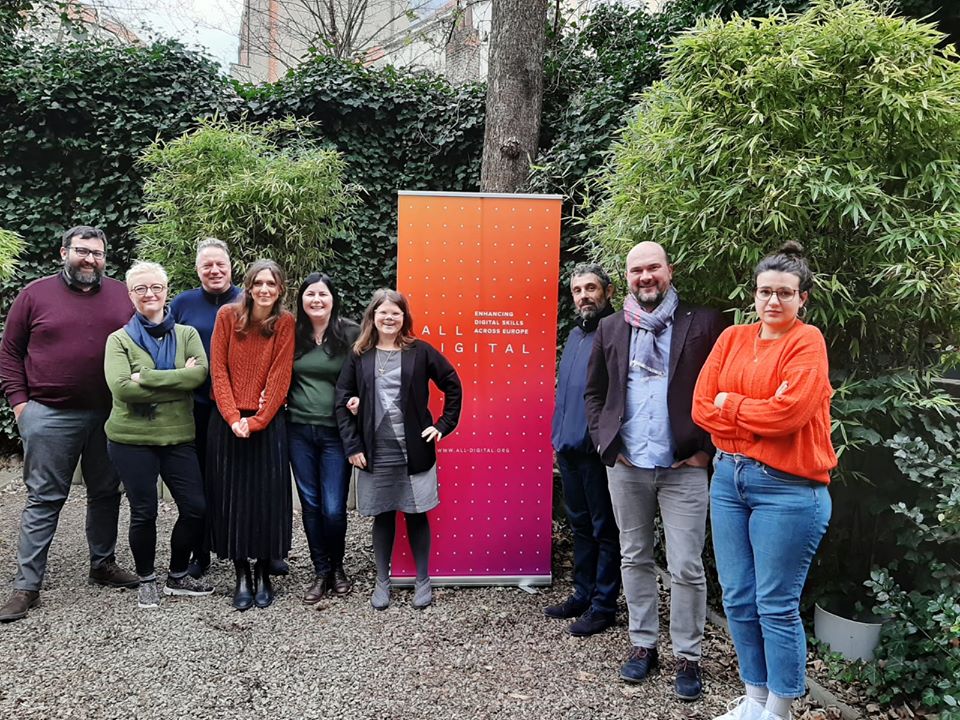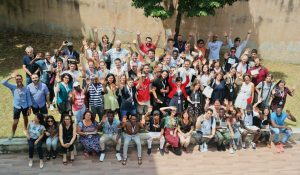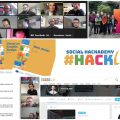
17 Feb Social Hackademy Project kicks off in Brussels
17 Feb, 2020
 The Social Hackademy project wants to foster digital skills and competences of youth at risk of social and digital inclusion by developing and piloting an innovative methodology, which targets youth workers and young people from disadvantaged backgrounds in digital skills, specifically modules on mobile app development, web design, and visual and graphic design. They will then apply what they learn by hacking solutions matched to sustainable development goals in a social hackathon.
The Social Hackademy project wants to foster digital skills and competences of youth at risk of social and digital inclusion by developing and piloting an innovative methodology, which targets youth workers and young people from disadvantaged backgrounds in digital skills, specifically modules on mobile app development, web design, and visual and graphic design. They will then apply what they learn by hacking solutions matched to sustainable development goals in a social hackathon.
Hackathons (a portmanteau of hacking and marathon) are sprint like events lasting a couple of days where at the end a functional solution is created. Typically, hackathons were confined to the field of software development, however the methodology of hackathons is increasingly applied to fields dedicated to a cause or a purpose to improve society and to find answers addressing questions of sustainable development and solutions.
The Social Hackademy aims to empower young people from disadvantaged backgrounds by helping them acquire and develop digital skills to find digital solutions to social challenges and also improve the capacity of trainers to foster the digital skills of youth at risk of social and digital exclusion. This is done through setting up of social hackademy labs and organising social hackathons.
The project builds on the good practice the Social Hackathon Umbria developed by project partner EGInA, which is based in Foligno, Italy. The use of social hackathons was used in the Generation 0101 project as a final event that was both used as a means of capacity building and co-creation, leading to sustainable innovation. The final event for Generation 0101 was so successful that it was decided that the social hackathons would be a regular event, which ended up taking place in Umbria for three editions prior to being developing into the Social Hackademy project.

Methodologies of hackathons, as mentioned, are increasingly used in other domains than just software development. While many organisations are using hackathons, it is important to stress the focus on social inclusion in both the best practice of social hackathons, like the best practice of SHU, and the Social Hackademy project. The hackathons in the project will be structured to find solutions addressing each of the 17 sustainable development goals, thus empowering young people by linking their solutions in a greater global context.
The partners of the Social Hackdemy project are:
- ALL DIGITAL based in Belgium and coordinators of the project,
- EGInA from Italy and also owners of the good practice,
- Hellenic Open University from Greece and who will develop the platform,
- Centre for Technical Culture Rijeka in Croatia who will develop the methodology for scaling up the good practice),
- Public Libraries 2030 based in Belgium and will organise the final policy event at the European Parliament in Brussels,
- and Simplon in France who will pilot the project in France.
The kick-off meeting on 10-11 February 2020 was the first occasion where partners managed to meet together. Unfortunately, bad weather meant that our partners from Croatia could not make it to Brussels for the kick-off meeting, fortunately they were able to join online. Partners had the chance to learn about the project history, timeline, share their background and experience and know the next stages for collaboration. A representative from EACEA that funds the KA3 social inclusion projects also attended the first part of the meeting to contextualise how the results of the project will be used, how policy recommendations will be used but also invited partners to be creative in how they approach the project – to escape from the confines of project management language and ensure the results and context of the project are approachable not only for the general public, but for the beneficiaries of young people at risk of exclusion.










